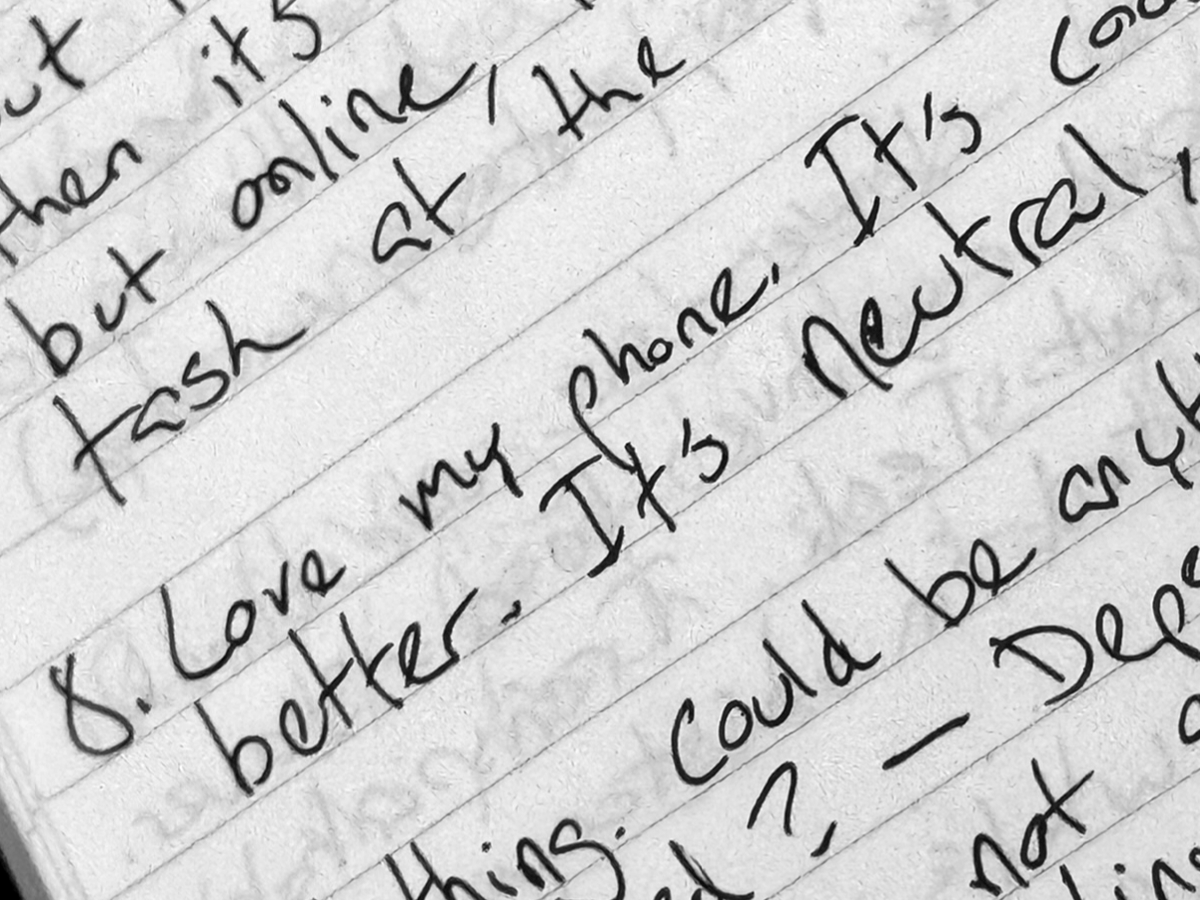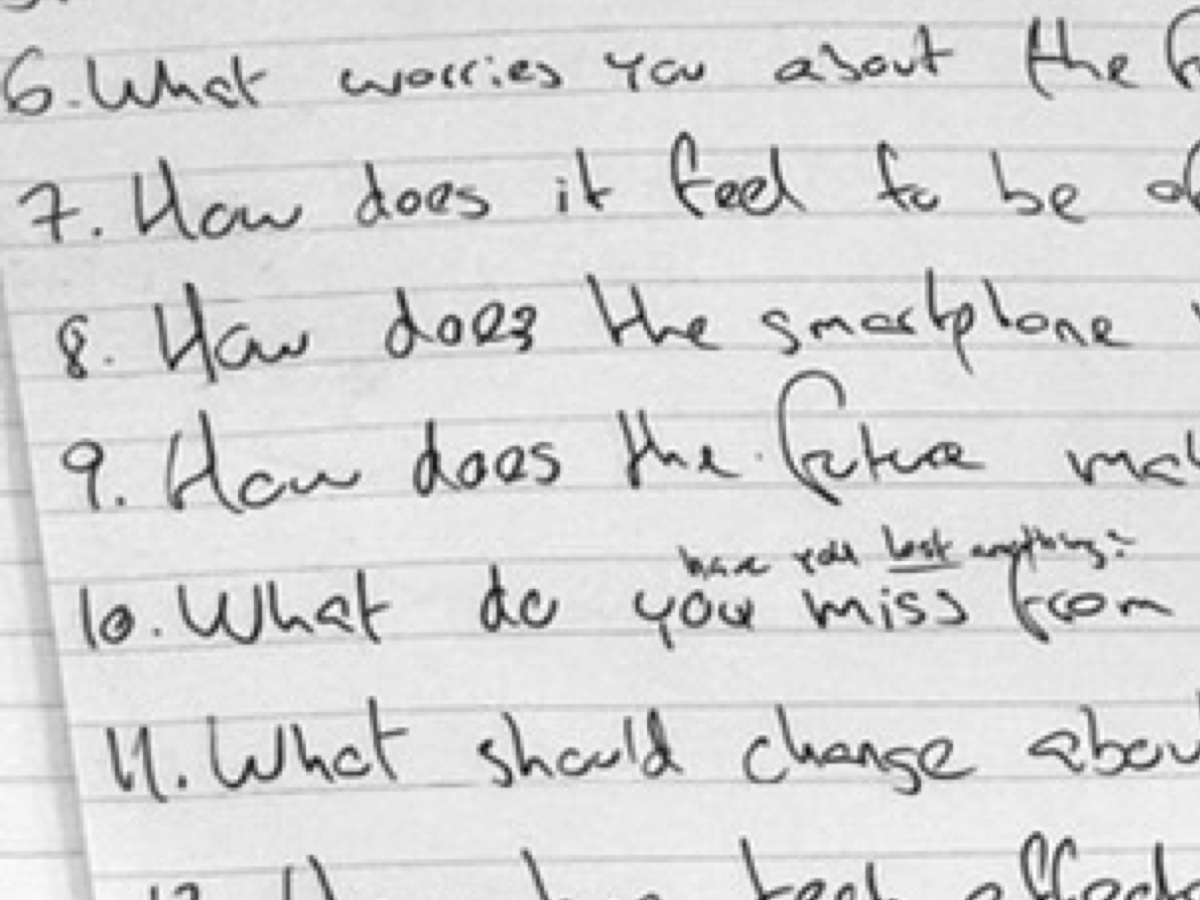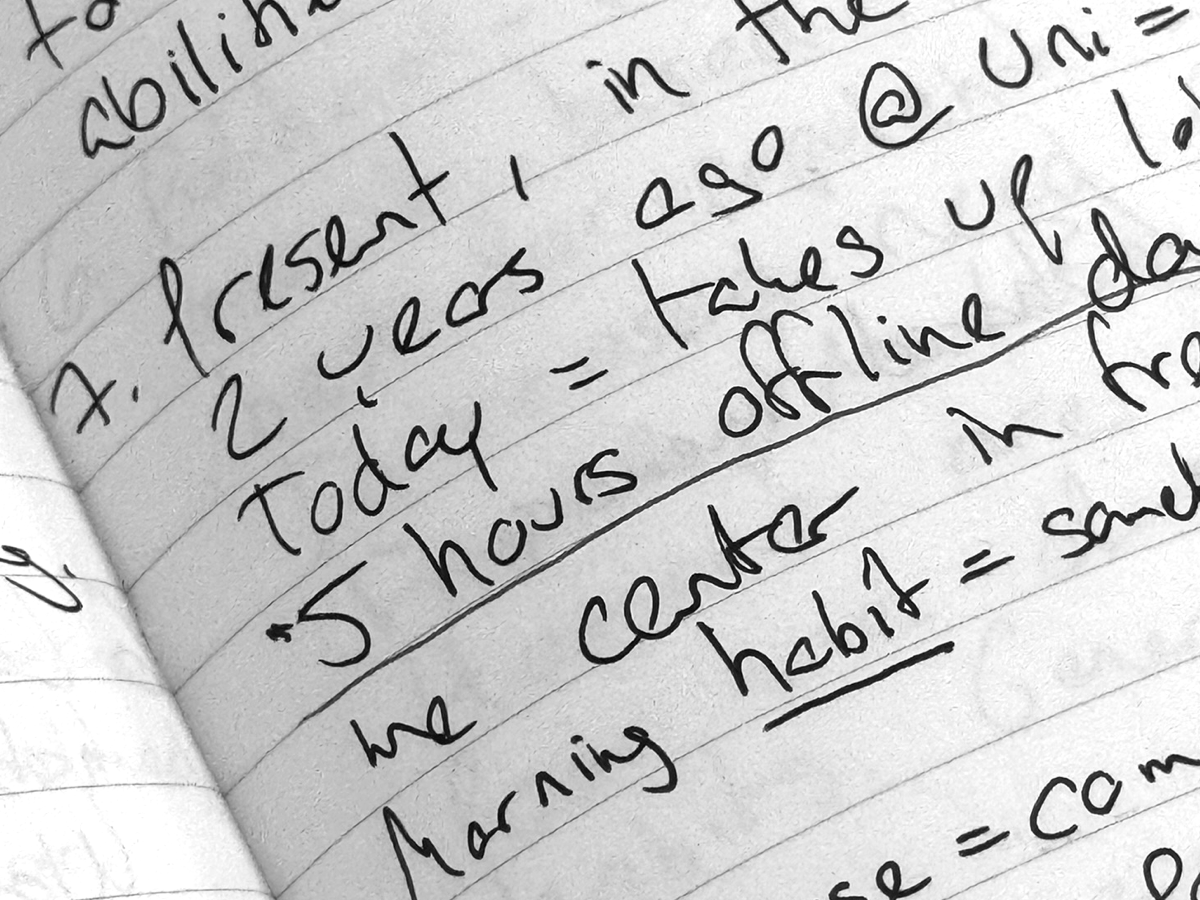The smartphone to me is an extension of my nervous system. It augments my memory, my senses, my intelligence – it annihilates the distance between myself and everything else – people, ideas, distractions. The most intimate of devices, the smartphone bridges my inner world with the outer. Links impulse with action. Thought with realization. Everything is knowable after the smartphone – every piece of information disambiguated – every whereabout deciphered.
With total information awareness comes a sense of perpetual fear of missing out. A sense of incompleteness, of finitude. We can never view all the stories, read all the links, know all the facts or play all the games – so we are left exposed to our shortcomings, faced with the inherent limitations of our human nature. The smartphone simultaneously enriches and malnourishes us. It gives a sheen of presence without requiring the effort of being there.
This interplay between expectation and reality can become a gently crushing force against our sense of personal well-being. It gives and it takes away. More connections, fewer conversations. More potential, less (sense of) achievement.
The answers I am given can comfortably be segmented into positive vs. negative feelings, with little ambiguity. It is worth noting however that most participants declare feelings on both sides of the spectrum, reminding us about the inherently ambivalent relationship we share with these devices.
Positive
Accompanied, Augmented, Available, Aware, Capable, Confident, Connected, Control, Coordinated, Delegated, Ease, Efficient, Empowered, Enchanted, Enthusiastic, Extended, Flexible, In touch, Intelligent, Lifeline, Love it, Oriented, Peaceful, Present, Reachable, Safe, Secure, Sociable, Soothed, Superman, Supported, Swiss-Army Knife, Useful.
Negative
Addicted, Annoyed, Anxious, Bored, Claustrophobic, Creeped, Crutch, Demanding, Dependent, Discomfort, Disconnected, Distant, Distracted, Dumb, Egoistic, Enslaved, FOMO, Followed, Frustration, Incomplete, Inflamed, Insufficient, Intruded, Invaded, Isolated, Judgmental, Lonely, Mad, Observed, Out of Control, Sad, Scattered, Separation Anxiety, Stressed, Trapped, Unfeeling.
Negative sentiments slightly outweigh positive ones, and no respondent claims exclusively positive or negative feelings. A steady minority report having no feelings whatsoever towards the device, reserving a purely utilitarian role for it in their lives.
Most respondents report ambivalence toward the smartphone in their life, aware of the balancing act between what it gives and what it takes. Love and hate, mixed feelings and conflict are frequently cited.
Almost nobody I speak to reports a sense of balance, or equanimity with their device. It seems most identify a tug-of-war-like struggle to contain the role of the smartphone in their lives. Furthermore, there seems to be positive correlation between the time spent on device and apparent dissatisfaction with it. The longer you use it, the unhappier you are (or become?).
Conflicted and dependent. Superhuman and powerless. Empowered and enfeebled.
Interestingly, a small number of respondents have declared an almost universal sense of improvement from having the smartphone in their lives. Most of them are 30-50 year old professionals working with or in technology – mainly entrepreneurs and software developers, who all seem to have grown up with a high exposure to technology. These report a mainly positive experience from having the smartphone in their lives, emphasizing how it makes them feel in control and on top of things. All of them are male. This observation might represent a peek into implicit power structures, and how technology favors certain classes of society, but is of little use if you’re not one of them.
Instead, we can learn from what they (and to a degree myself) have in common from having grown up around technology. Primarily, they seem to treat technology dispassionately, purely as tools. They also display higher than average technical abilities with their tools, and seem to have a mental ‘off-switch’ for when they can ignore the device (compartmentalization).



